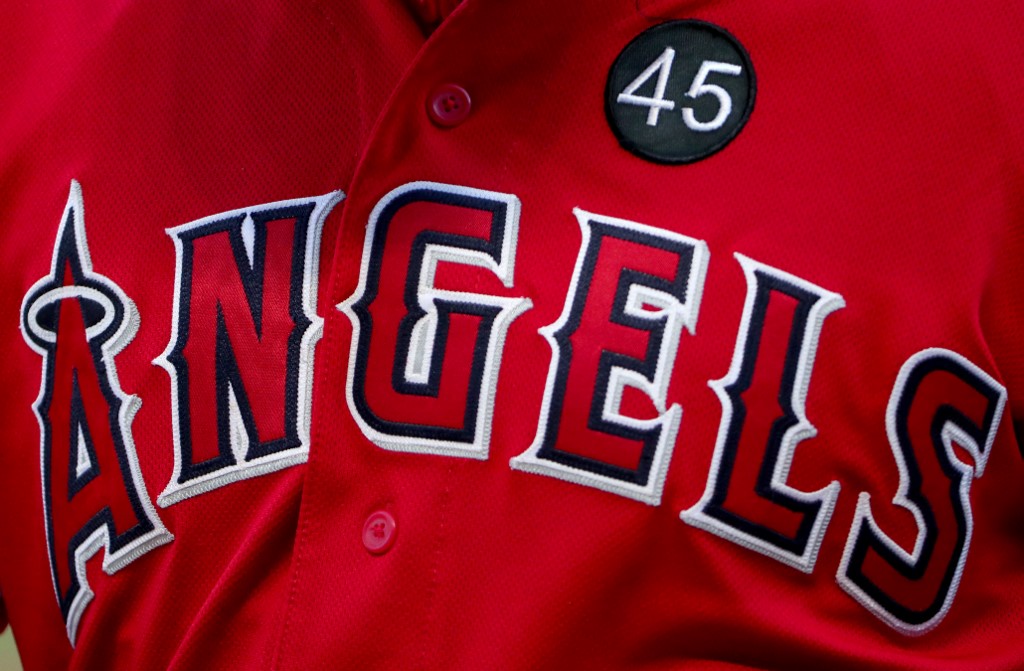

ARLINGTON, TEXAS – JULY 02: A view of a Los Angeles Angels jersey with a patch to honor Tyler Skaggs #45 of the Los Angeles Angels at Globe Life Park in Arlington on July 02, 2019 in Arlington, Texas. Tom Pennington/Getty Images/AFP
Major League Baseball jerseys are being turned into desperately needed hospital masks and gowns to help health care workers combat the coronavirus pandemic, thanks to the league’s uniform manufacturer.
MLB and official apparel maker Fanatics are absorbing all costs associated with converting machinery at the Easton, Pennsylvania, factory from uniform manufacturing to production of up to one million masks and gowns.
“I’m proud that Major League Baseball can partner with Fanatics to help support the brave healthcare workers and emergency personnel who are on the front lines of helping patients with COVID-19. They’re truly heroes,” MLB president Rob Manfred said.
“We hope this effort can play a part in coming together as a community to help us through this challenging situation.”
The first fabrics used to make masks and gowns were New York Yankees and Philadelphia Phillies uniforms, which come complete with the pinstripes typically worn by players on those clubs.
Jersey fabrics from all teams not already converted into uniforms will be made into new apparel for hospital workers and emergency personnel to combat a shortage of such equipment that has hampered efforts nationwide to control the deadly COVID-19 outbreak.
The Fanatics plant plans to make the items as long as they are needed, with the US Health and Human Services department estimating up to 3.5 million face masks will be needed.
“As the demand for masks and gowns has surged, we’re fortunate to have teamed up with Major League Baseball to find a unique way to support our frontline workers in this fight to stem the virus, who are in dire need of essential resources,” Fanatics executive chairman Michael Rubin said in a posting on the MLB website.
The MLB season was to have started on Thursday but has been postponed indefinitely due to the pandemic.